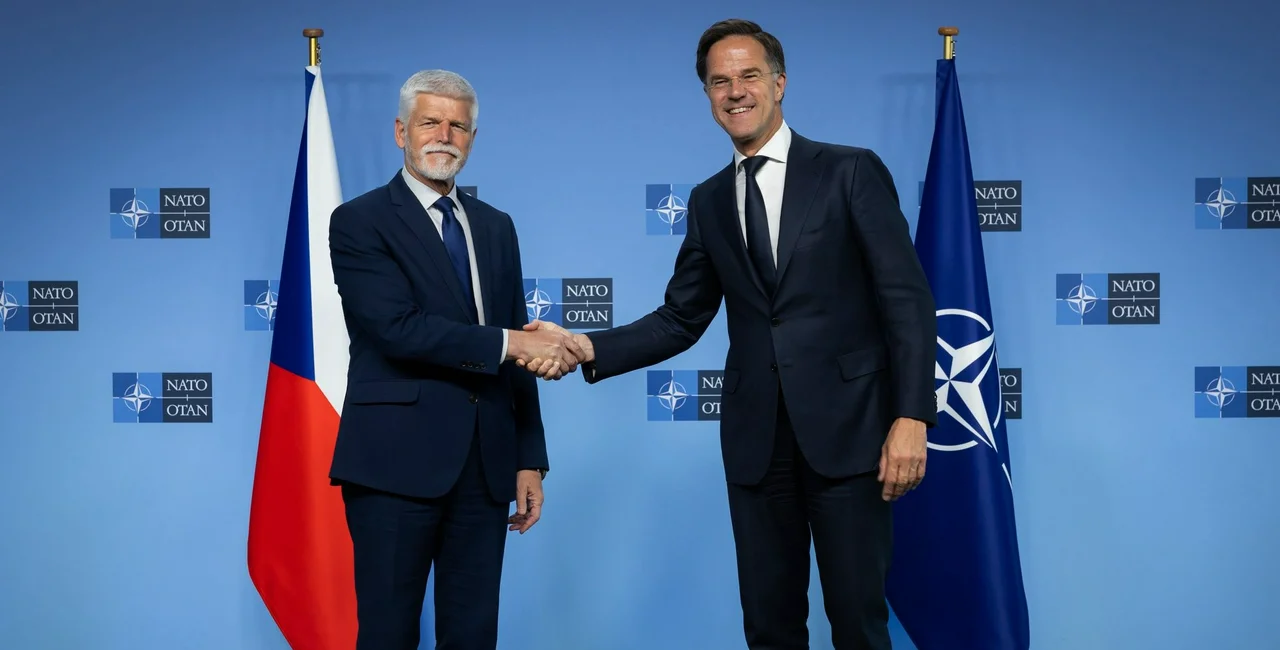Czech President Petr Pavel said Wednesday that the country is prepared to back increasing defense spending to 5 percent of GDP—if NATO members reach consensus at their June summit.
Speaking after meeting NATO Secretary General Mark Rutte, Pavel stressed the importance of aligning spending with actual security needs rather than fixed targets.
"I keep repeating that we should not begin this debate with percentages," he said. "We must start with what we need to feel secure."
Rutte outlined key summit topics including rising defense budgets, boosting allied arms production, and countering threats from Russia, China, North Korea, and Iran. He highlighted Russia’s ammunition output, which is currently four times that of all NATO countries combined.
The summit is expected to set a new spending target. Rutte proposed raising defense budgets to 3.5 percent of GDP plus an additional 1.5 percent for dual-use infrastructure and support, totaling 5 percent—a figure previously pushed by former U.S. President Donald Trump.
five-percent Defense Spending: economic impact
Defense spending can drive innovation and jobs—if targeted well
Investment in R&D, digital infrastructure, and green tech could create skilled jobs and boost competitiveness, following Estonia’s example.
Spending at home amplifies economic benefits
Prioritizing local arms production and military infrastructure could stimulate regional growth, especially in less-developed areas.
Infrastructure and logistics upgrades benefit the civilian economy
Funds aimed at transport, energy, and medical support improve civilian life and long-term economic efficiency.
But trade-offs are real—opportunity costs matter
Defense hikes may reduce budgets for education, healthcare, or green transition unless new revenues are found.
Source: Council on Geostrategy, Europa.eu
Czechia met NATO’s 2 percent GDP spending benchmark for the first time last year and aims for 3 percent by 2030. Pavel said, “When we count all the necessary items, we already get very close to 3.5 percent, sometimes even a little higher.”
On the additional 1.5 percent, he explained, “For the Czech Republic, which is surrounded by NATO allies, our main role is as a transit route and host-nation support...heavy demands on logistics and all kinds of support for moving troops.” He added, “The spending we would need anyway to improve transport routes through Czechia would actually fall under that 1.5 percent.”
Pavel confirmed consultations with Prime Minister Petr Fiala and said if NATO reaches consensus, “we won’t oppose it, because we consider it a sensible approach.”
Earlier, Pavel visited NATO’s Supreme Headquarters in Mons and met with top commanders. He also joined Rutte to open an exhibition marking 25 years of NATO Days, a major European security event held annually in Ostrava.












 Reading time: 2 minutes
Reading time: 2 minutes 
























